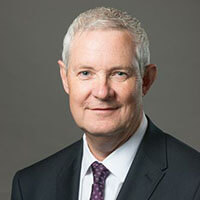By now, for those of you who have been following my series on the edge of the network, you’ll know what it is, how it can and should apply to a hybrid IT strategy, and how its simplicity can enable for an easy-to-use distributed network for businesses.
I think it’s time we looked at some real-life examples from Australia and New Zealand to see how businesses are benefiting from edge computing.
Working out at the Edge
The first Fitness First club in Australia opened in 2000, and the company now sports more than 240,000 members visiting 65 clubs around the country.
In Barangaroo, Sydney, the business opened its first ever dedicated mind and body studio – The Space Studio. It features 90-minute hot yoga classes at 35 degrees Celsius using specialty heat pads mounted directly to the ceiling and side walls of the yoga studio. Right next door where the IT infrastructure was planned to be situated.
For those of you who work with IT infrastructure, there may be some alarm bells going off – data centers and their kin prefer a cooler experience and are not built to withstand these kinds of temperatures alone.
Luckily, cooling equipment can manage this – even if it needs to be turned up a notch during these periods. However, the unique ambiance sought by those who attend yoga classes would easily be disturbed by the added noise this would bring.
The studio needed a self-contained communications cabinet that could safely house its IT equipment without affecting the positive experience its members need.
Vertiv’s SmartCabinet™ worked out to be the perfect solution to maintain the high-intensity IT environment required by the Studio. The SmartCabinet is a fully integrated single rack data center that contains power protection, power distribution, cooling, monitoring and infrastructure management.
One product code, next day delivery and less than one day to install. It fits snugly inside the relatively small space available within the studio, providing a self-contained unit including switches, power back-up, air-conditioning and remote access.
It might take you more than 48 hours to get into shape, but that was all the time that was needed for Fitness First to get the IT results it needed in this studio – the deployment turnaround time on this kind of edge device is minuscule compared with traditional data center deployments.
The Edge of New Zealand’s broadband network
Across the water, Chorus is New Zealand’s largest telecommunications infrastructure company, building and maintaining the country’s fixed line network. Multiple phone and broadband providers deliver innovative products and services via this network making it a core part of New Zealand’s IT backbone.
In New Zealand – like many other countries – there is a sizeable shift away from businesses housing their own IT infrastructure and instead moving to the cloud. However, they still require independent back-up and disaster recovery locations, a requirement made all too real by the recent earthquakes the country has suffered.
The move also means a significant increase in compute power needed at the edge of Chorus’ networks. New Zealanders are accustomed to high-speed connectivity, meaning a whole lot of data needs to be moved around, analysed and stored.
To satisfy the growing demand for more data and faster broadband speeds, Chorus is installing 20,000 kilometers of fibre optic cable and ducting throughout the country. Once completed, this will make up the Ultra-Fast Broadband (UFB) network, the counterpart to Australia’s own NBN.
Embedded in this network are more than 600 physical exchanges available nationwide providing premium collocation services. At the core of this network lies the Mt. Eden telephone exchanges – this is where we come in.
Vertiv installed a 16-rack SmartAisle™ solution (think SmartCabinet highlighted earlier, but bigger) in the Mt. Eden exchange, providing all the infrastructure expected from a traditional 1,000 rack build, but without the long design and build time.
This gives Chorus the flexibility to quickly deploy scalable solutions and connect multiple, multi-tenanted data centers. In smaller sites, we can also install the SmartCabinet to provide the same results on a smaller scale.
Other case studies from the ‘Vertiv Vault’ include a leading sports apparel company that needed to build a disaster recovery data center in an alternative location to its production site. It chose a Vertiv SmartRow – think somewhere in-between SmartCabinet and SmartAisle. Going the traditional data center route would have involved a three-rack unit with raised floor, perimeter cooling and added complexity, costing in excess of $100,000, compared to the SmartRow which came in on the right side of that figure.
The added advantage of not needing a purpose-built facility enabled the customer to have the site up and running in weeks rather than months. Another advantage is that the modular data center could be claimed within the business as a ‘strategic IT asset that depreciates’ as opposed to a facility requiring capital to be poured into it.
Another small equity capital business with a headcount of around 20 was looking to free up a room previously used for office communications. When you’re looking to free up space, building another data center room certainly seems counter-productive, particularly in a high-rise office in the CBD where office space comes at a premium. This building also had no access to outside ventilation for cooling systems.
Instead, we installed our SmartMax, which is a free-cooled data center in a rack, fully monitored, factory integrated and shipped complete. It provides minimal disruption to the company’s communications and working environment. The customer had upgraded its IT infrastructure to a hyperconverged solution, which has the core advantage of taking up less physical rack space while delivering more processing power. The SmartMax houses this solution comfortably and removed the need for a purpose-built server room.
Where does your business sit on the edge?
These are just some examples of how edge computing can provide real-life benefits and a unique solution to specific IT needs. Think about your own organisation – how could you use edge technology to benefit it?
Make sure you stay tuned for my final edge article of this series, where I’ll look at the edge economy, and highlight how investing in edge infrastructure can have a positive impact on your bottom line.
Check out the official case studies for the Space Studio and Chorus New Zealand to see more on how they’re using the edge to their advantage.





